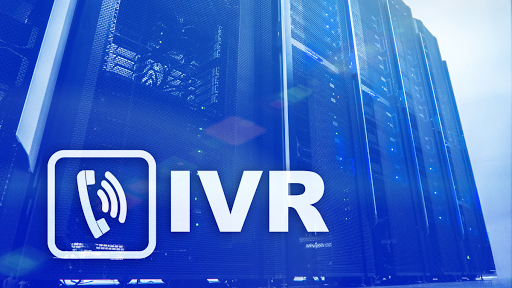
IVR systems have long been the ugly duckling of customer service. The concept of ‘press 1 for service, press 2 for sales’ is the most parodied feature of call centers; those jokes cover genuine dislike for IVR.
And yet… if they’re saving businesses money, they’re here to stay.
Bad luck for customers?
Not necessarily. While the bad examples get all the attention, there are plenty of good IVR implementations out there. The technology did stagnate for a few years but a few recent developments have kicked it back into gear.
In this post we’ll check out four reasons IVR systems are still worth your time and effort.
- Identifying and welcoming callers
- Intelligently routing queries
- Speeding up data collection
- Providing a simple self-service option
- Automating appointments, follow-ups and payments
#1 Identifying and welcoming callers
Do you remember the old days; how if your phone rang you’d have no idea who on the other end?
These days, the callers number flashes up on your screen. If it’s your crush, you answer. If it’s your ex, you ignore…
So why can’t call centers do that? Think about your energy company for example. They have your number on file in their call center CRM – but when you call them, they don’t know who you are.
Is there a good reason for that?
No.
It’s actually super simple for an integrated IVR system to recognize incoming callers. But many businesses are content to treat their customers like strangers!
Here’s the ideal setup: you call, and they recognize you from your number. Their system thinks ‘we know this person, so let’s find out if there’s any information we can use’.
At the very least, the IVR system can transfer you to an agent who knows your name!
#2 Intelligently routing queries
It follows that if the IVR system knows who you are, they might know all kinds of other useful things.
What if this is the second time you’ve called today? The two calls are probably related, right? So before it routes your call, the IVR system should look at the reason for your last call.
‘Hey, this person called about their late delivery. They’re probably agitated – let’s send them straight to a customer retention expert.’
That’s just an example, but the logic is clear right? Contact centers should route customers based on their customer lifetime value, their likelihood of churning and their recent conversations.
In some cases customers can even be routed to the last agent they spoke to. That’s a sure-fire way to save time and effort because the agent already knows what’s happening.
#3 Speeding up data collection
Data collection is probably not your idea of an enticing topic. But in the contact center, good data collection is crucial.
For one thing, you need up-to-date data to do any of the stuff we’ve already talked about. There are also a host of service and sales opportunities that will pass you by if your data isn’t high quality.
In the contact center setting there’s another consideration: wrap-up time. Keeping ACW short can really improve overall performance because agents spend less time filling in forms and more time talking to people.
So wait, what’s the connection between this and an IVR system? Simple – modern IVRs can ‘listen’ and collect data in the background, sending it straight to other systems where it need to be recorded.
That’s one less tedious data entry job for agents to do!
#4 Providing a simple self-service option
Have you heard of conversational IVR?
If not, just think of Amazon’s Alexa, or Apple’s Siri.
It’s like that.
Basically, conversational IVR can talk to callers, figure out their needs and (in some cases) fulfill them.
In many cases there’s no agent involvement at all. For example, simple queries like a request for information or a change to a booking can be met by an automated IVR service.
That saves tons of time and money. It also means that agents don’t have to deal with as many boring and repetitive tasks. (If you’ve ever worked in a call center, you’ll know how much time is wasted resetting people’s passwords…)
Even in the scenarios where callers need a human agent, the conversational IVR has a role to play.
Think about it like this; the caller can explain what they need to an IVR, get routed to an agent, and then explain what they need again.
Or…
They can talk to the IVR – which passes on the key details to the agent – and then finish the conversation with a person who knows exactly how to help.
And that’s all any of us really want, right? Fast, efficient service – first time!
babelforce is a global cloud communications platform focused on No-Code integration and automation. It allows non-technical people to build even the most complex integrated processes for customer-facing teams, particularly in the call center.



